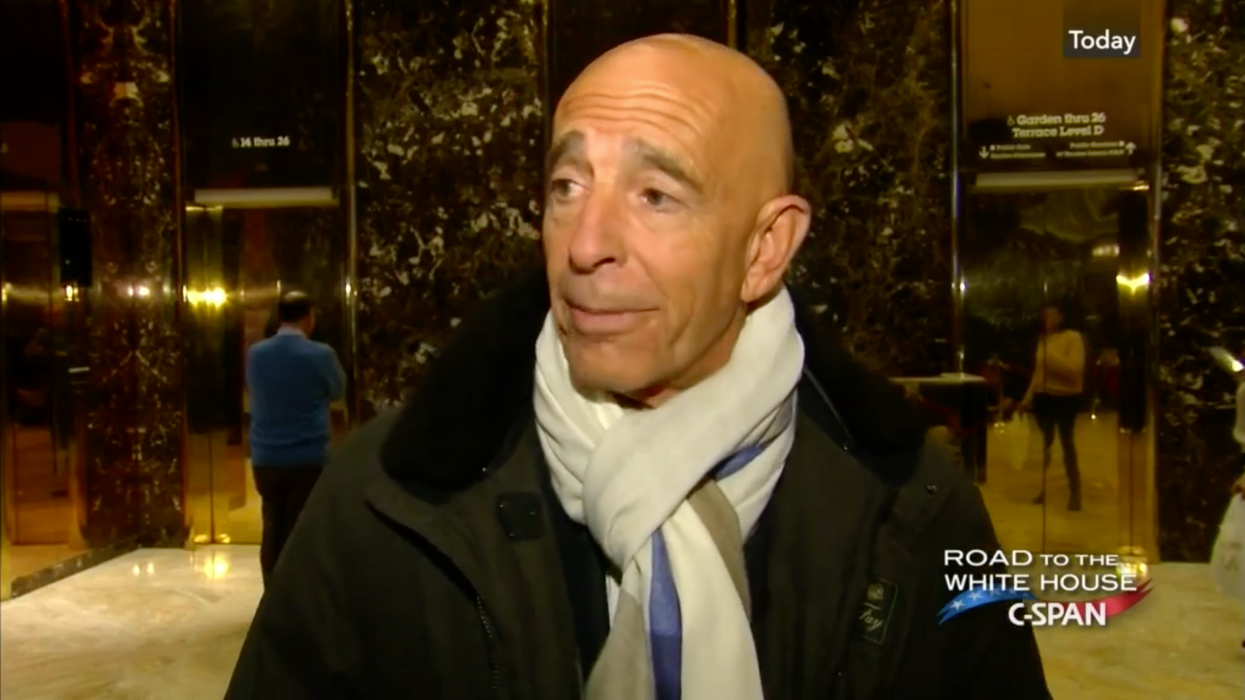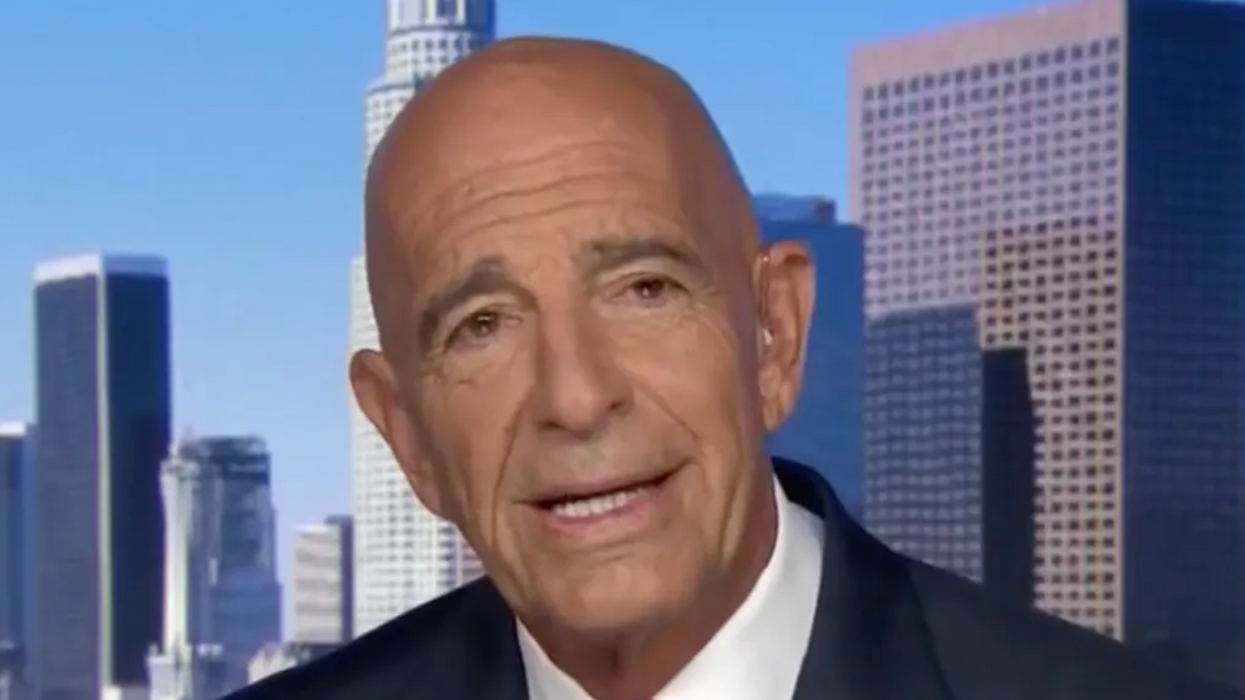Trump Pal Got Emirati Bonanza While Lobbying White House
Thomas J. Barrack Jr., a billionaire fundraiser and longtime friend of former President Trump, sought hundreds of millions of dollars in investments from the United Arab Emirates for an investment fund that would reinforce the former president’s agenda and benefit from his administration’s policies, federal prosecutors said in a Tuesday court filing.
The filing was a superseding indictment that levied additional charges on Barrack for lying to federal investigators, lobbying the Trump administration on behalf of the UAE, and conspiring with Emiratis to influence the Trump campaign.
Federal prosecutors also said that Barrack’s investment management firm, Colony Capital — which, per NBC News, wasn’t named in the filing — received a sudden injection of $374 million in capital commitments from two UAE wealth funds after not receiving any funds from the country in seven years prior, from 2009 to 2016.
In a 55-page superseding indictment, which replaced the original 46-page court filing, the Justice Department closely details how although the pro-Trump fund’s “primary purpose” was to earn profits, it quickly adopted “a secondary mandate to garner political credibility for its contributions to the policies” of the Trump administration, federal prosecutors said in the filing, quoting what a top Trump aide wrote in a “U.A.E Fund” plan in the weeks after the 2020 election, according to the New York Times.
The Times also reported that the plan claimed the fund would make money by “sourcing, financing, operationally improving and harvesting assets” in industries that would “benefit the most” from the Trump administration. Federal prosecutors cited the fund as evidence that Barrack wanted to profit from his illegal lobbying of Trump and his circle on behalf of Emiratis.
The Justice Department also accused Barrack of making “multiple false statements” when he lied to the FBI in a 2019 interview with the bureau. The amended indictment charged Barrack for allegedly lying he had one phone when he, in fact, had a secret line solely dedicated to his communication with the Emiratis. Barrack was also accused of lying when he denied engineering phone calls between then-President-Elect Trump and two Emiratis officials in 2016.
Last year, the Justice Department accused Barrack and two co-conspirators, Mathew Grimes and Rashid Al-Malik, of “acting and conspiring to act as agents of the UAE” from April 2016 to April 2018.
“The defendants repeatedly capitalized on Barrack’s friendships and access to a candidate who was eventually elected President, high-ranking campaign and government officials, and the American media to advance the policy goals of a foreign government without disclosing their true allegiances,” said the Department of Justice in a statement.
The indictment also cited April 2017 email and text message communications investigators obtained from the suspects, which stated Barrack could meet with the Emirati ruler Sheikh Mohammed bin Zayed, the Abu Dhabi crown prince at the time.
Although there is no evidence that the meeting ever took place, the indictment stated that Barrack’s company, now known as DigitalBridge Group, received multi-million dollar capital investments in the following months. Internal company records attributed the massive investment to “Barrack magic,” the New York Times said.
According to a 2019 congressional oversight committee report, Barrack sent the Emiratis a copy of a Trump campaign speech about Energy he had drafted — and permitted Emiratis to recommend amends to — that praised Shiekh by name, the New York Times reported.
“They loved it so much! This is great,” responded co-conspirator Malik, who is still at large outside the United States. The speech also contained mild language favorable to the Emiratis: a pledge to "work with our Gulf allies.”
The Emirati meddling increased in scale after that, according to the indictment. In the weeks leading up to the 2016 Republican National Convention in Cleveland, Ohio, Barrack worked with Paul Manafort, former President Donald Trump’s campaign chairman, to water down the GOP platform at the Emiratis' behest.
“Can be much more expansive than what we did in the speech,” Manafort wrote Barrack in an email, “based on what you hear from your friends,” referring to the Emiratis.
In the indictment, federal prosecutors also alleged that Barrack and several Emirati officials worked together to arrange a phone call Trump had with Sheikh Mohammed during the transition in November 2016. “It’s done, great call,” co-conspirator Malik wrote in thanks to Barrack’s aide.
Barrack pleaded not guilty to the original counts filed last year and is awaiting trial, and his representative declined to comment on the superseding indictment. A spokesperson for Trump also ignored requests for comment.










